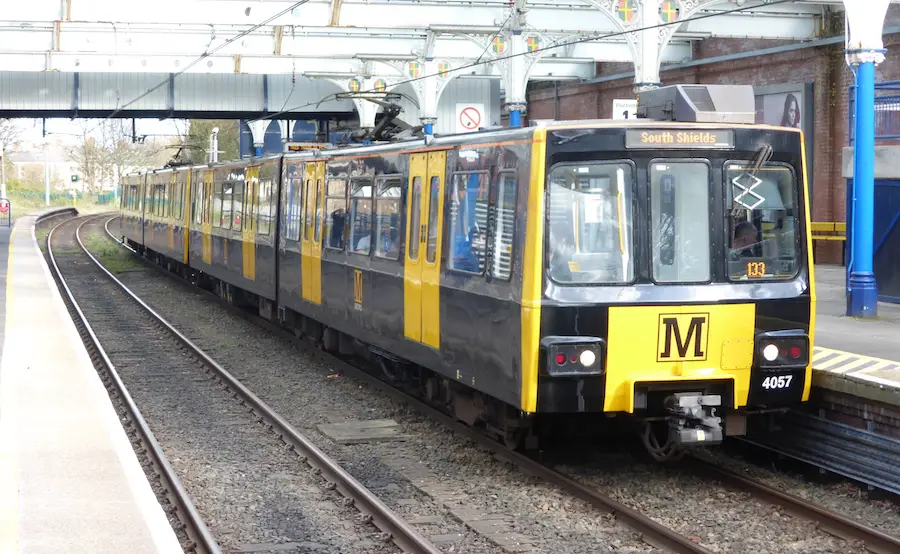The Tyne and Wear Metro Flow is a 128.93 million USD track dualling project in South Tyneside that will improve and electrify an existing freight line to make it capable of carrying metro services. The upgrades will allow for an additional 24,000 passenger journeys per day, increasing service frequency and decreasing journey times.
Nexus Metro has been able to proceed with the project thanks to a total of 95 million GBP secured from the UK Government’s Transforming Cities Fund. This funding also allows Nexus to purchase four additional new trains in addition to the 42 already ordered.
Buckingham Group Contracting won a 55 million GBP (64.19 million EUR | 68.85 million USD) tender for the project’s construction stage. The Metro Flow project will dual three sections of single track on the network that are currently used by trains in both directions. The sections are located between the metro stations of Pelaw and Hebburn (800 meters), Hebburn and Jarrow (1.4 kilometres), and Jarrow and Bede (600 metres).
Read Also: Contractor Appointed for Avanti Grange Secondary School in Bishop Stortford, UK
Major work on Tyne and Wear Metro Flow Project to start this Autumn
The installation of the new overhead line that will run on the new metro lines once completed has started. Major work will commence this autumn, with a three-month line closure between Pelaw and South Shields beginning on September 12. This will be in effect until December 5, with a replacement bus service in place throughout the affected area. Metro Flow’s Head of Operations, Tom Hardwick, stated:
“This month marks an important milestone in the delivery of the Metro Flow project, which will transform Metro by allowing Nexus to increase system-wide service frequency. Customers and neighbours will begin to see the delivery of the first of the new overhead line masts that will be installed in the trial holes that are currently being dug on site.
While the majority of the work will be finished during two-weekend closures at the end of June and beginning of July, followed by a 12-week major line closure in September, the team will be working every night when trains are not running to minimize disruption to our customers to the greatest extent possible.”

